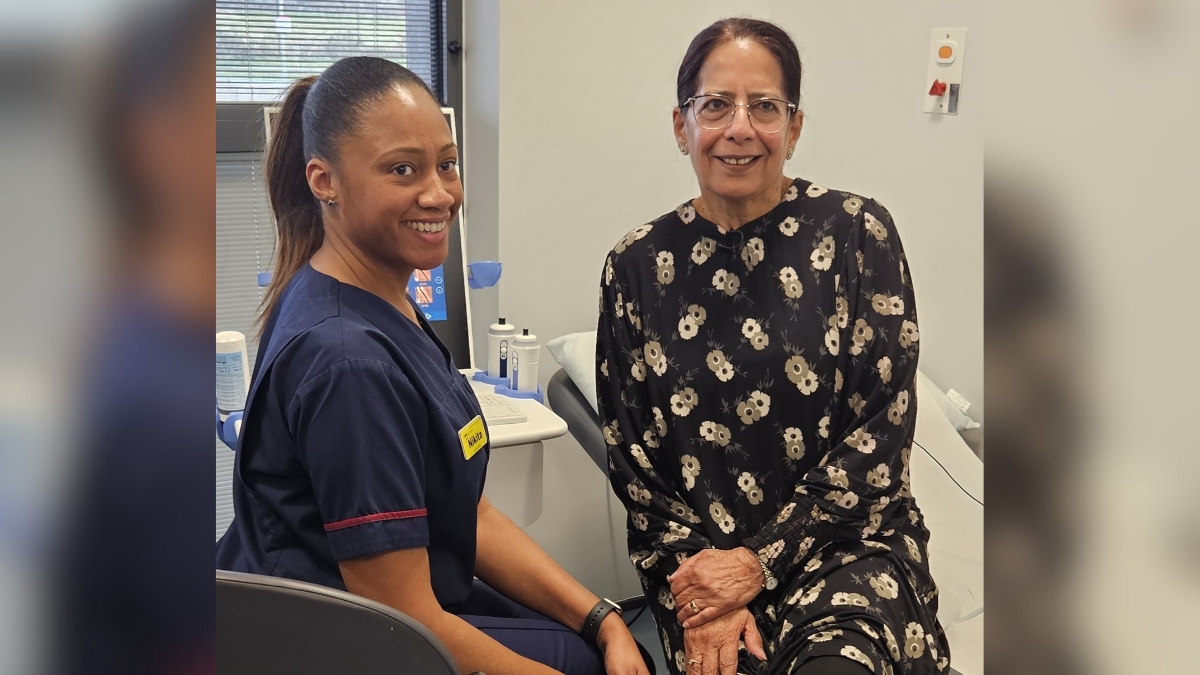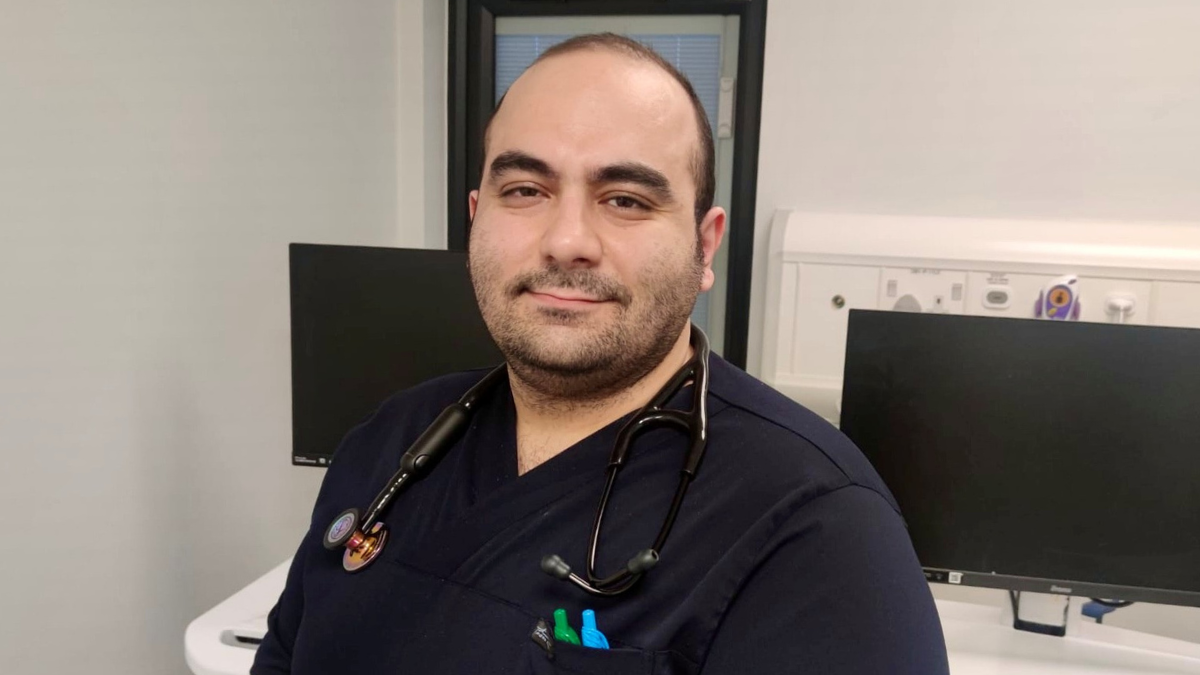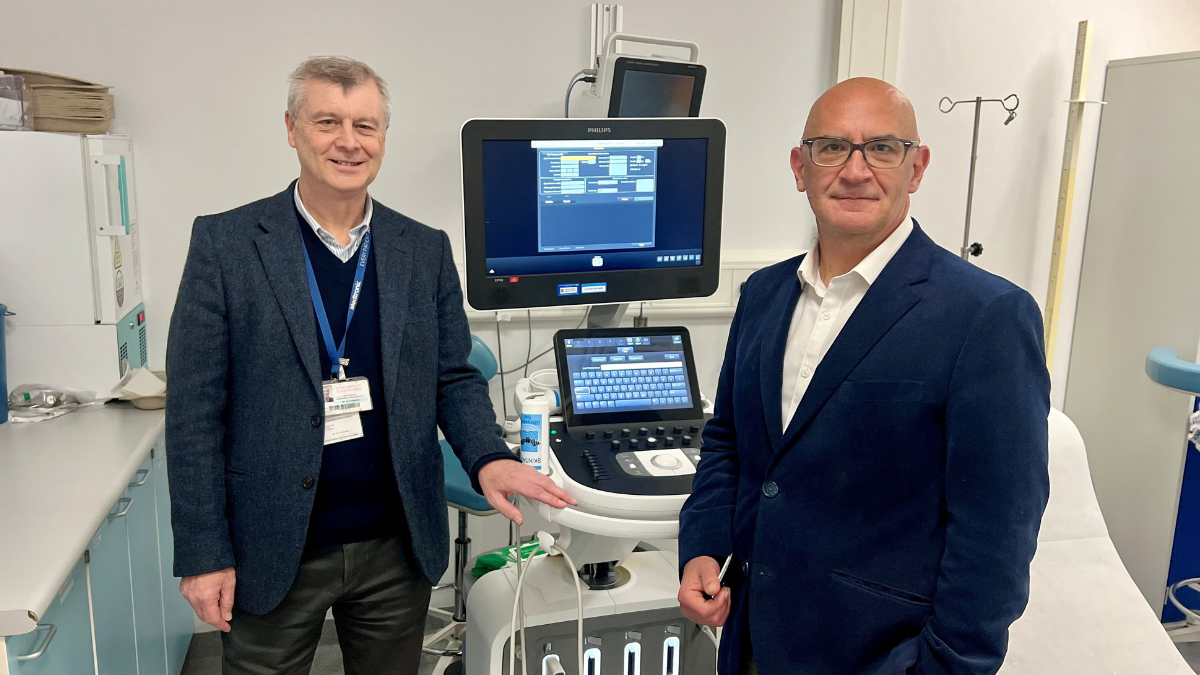Saving lives one blood test at a time
Published on 19/03/2025

Starting Tuesday, March 18, all patients aged 16 and over who visit the emergency departments at Heartlands and Good Hope Hospitals in Birmingham will be routinely tested for HIV, hepatitis B, and hepatitis C if they are already having a blood test. This initiative follows the Queen Elizabeth Hospital, which began the programme on 3 September of last year.
The successful introduction of this approach in 64 emergency departments nationwide, has seen over 7,300 people being newly diagnosed with one of these blood borne viruses (BBV) who were previously unaware.
Since the implementation of ED BBV opt-out testing at the Queen Elizabeth Hospital in September last year, over 22,500 blood-borne virus tests have been conducted. These tests resulted in 36 new BBV diagnoses, including 4 cases of HIV, 19 of hepatitis B, and 13 of hepatitis C. Additionally, 55 individuals who were previously diagnosed but not receiving care at the time of testing have since been identified with many successfully re-engaged with specialist services.
Dr Steve Taylor, Lead HIV consultant at Birmingham Heartlands Hospital and Clinical Director for the Birmingham Fast Track Cities’ initiative said of the expansion of the programme: “We've already observed significant results with just a few locations in the West Midlands and other cities across the UK joining the programme. This initiative will be a transformative development for our city and the entire country.
“Early diagnosis of HIV, hepatitis B, and hepatitis C is vital, as these infections can remain asymptomatic for years, potentially causing substantial damage before any signs appear. Our current medications are lifesaving for HIV and hepatitis B, and we can even cure hepatitis C.
Effective treatment of HIV prevents transmission to sexual partners, allows individuals to have children, and enables them to live long, healthy lives. Conversely, late diagnosis of hepatitis B and C is linked to higher rates of severe infections, liver cirrhosis, and liver cancer.”
All results are handled in confidence by a dedicated team of healthcare professionals specialising in HIV and hepatitis testing and treatment. Patients do not need to do anything extra. If they are already having blood tests taken, they are automatically tested unless they opt out.
Opt-out testing in action
For 71 year old Renuka Chandan, a visit to the Queen Elizabeth Hospital emergency department for suspected gallstones found herself with a diagnosis of hepatitis B following the routine opt-out blood testing programme. A follow up confirmatory blood test was then carried out and Renuka was placed in the care of follow up services at Heartlands Hospital.

When asked how she thought about the diagnosis she stated: “I am thankful that the NHS have started this programme and that I got picked up through it. I’m fortunate that I have good results and its not that serious.
“If it hadn’t been picked up then it could have been much worse. It’s good to know and by being tested you are not only helping yourself, but you are also helping other people and hence the wider community and I think that’s very important.”
Dr Susan Dorrian, Emergency Department consultant at Heartlands Hospital Birmingham said: “This will have been a remarkable achievement that has required immense effort, teamwork, and commitment from numerous colleagues in our laboratories, virology, and emergency departments. Their unwavering dedication to supporting the communities we serve and contributing to the broader public health objective of eradicating HIV and hepatitis transmission has been truly extraordinary.”


